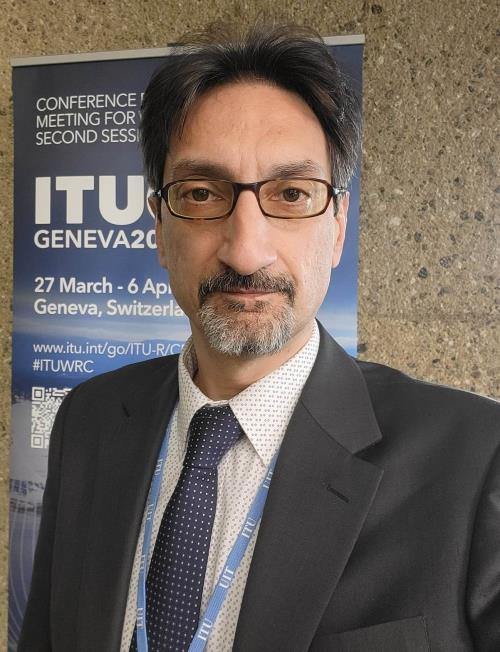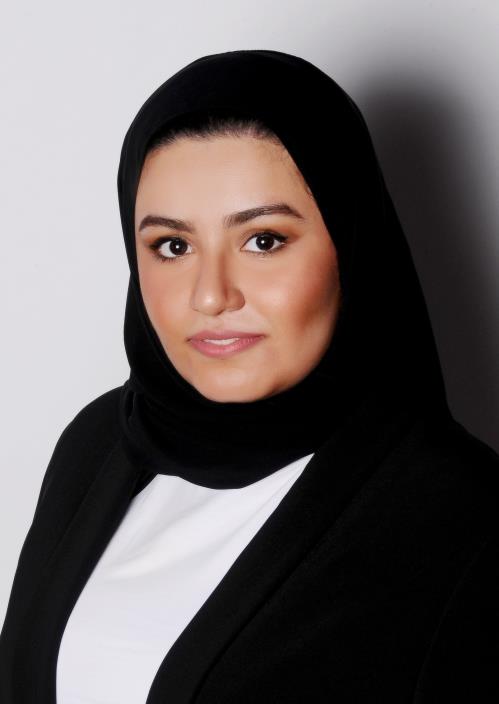Working together to sustain our future: what space has to offer and how we protect it
Space Park Leicester | University of Leicester (UK) & DePaul University (US)
Session 311
This session brings highly respected experts together to talk about their involvement in the context of space, and how they view the merits of space activities to our lives on Earth. A key feature of this session relates to 'international cooperation' and sharing the benefits of space for humankind. It is an interactive session - wherein various questions are posed to the experts - our experts being from the EU; US and other parts of the globe and working in areas such as GNSS (Galileo and Egnos for example) and other cooperative activities.
This session only too clearly evidences the benefits of space to us on Earth, in so much as it aids to connect all parts of the globe and, therefore, is an essential foundation for advancing ICT.

Dr Sarah Jane FOX's research relates to transport modes and systems and related movements (particularly from a law/policy/IR perspective). She specialises in air and space, and advancing technologies (such as autonomous and connected systems - which are enabled and supported by other technologies in space - e.g. GNSS (PNT). Her research relates to the challenges, opportunities and risks of advancing technologies. Dr Fox's research also encompasses virtual movements (cyber-space).
In 2015-2016, Dr Fox achieved a highly prestigious Fulbright Commission (12-months research) scholarship to the U.S., which was also supported by Lloyd's of London. She continues to research extensively in the above areas - which also intersects across safety, security and governance/framework aspects, and she has presented her findings to the UN, EU and Council of Europe, as well as other bodies and organisations across the world.
Dr Fox is also an advocator/mentor for the UN, supporting women and girls (access to schooling and technology) and she also writes across the area of preventing violence against women and girls (including in the cyber domain).
Sarah's PhD is in law and policy and relates to the above - namely movement/transport.

Dominic has worked on the European Union’s Galileo satellite navigation system for more than 20 years, firstly covering frequency aspects for the UK government, before moving to Brussels to work directly on the Galileo programme for the European Commission. He is now the Frequency Manager for the EU Space Programme, which includes Galileo and EGNOS, Copernicus (the EU’s Earth observation system), and the new global secure connectivity component, IRIS. In that capacity he has worked extensively at the International Telecommunication Union, particularly on satellite navigation topics discussed at the various World Radiocommunication Conferences. Dominic has also been an active contributor to the work of the International Committee for GNSS, where he represents Galileo for the European Union. In an earlier life he designed electronic equipment for the ATLAS experiment at CERNS’s Large Hadron Collider. He holds a Masters in Spacecraft Technology and Satellite Communications from University College London.

A senior space engineer in the National Space Science Agency (NSSA) - Kingdom of Bahrain, with a master’s degree in engineering systems and management with Space concentration, and bachelor’s degree in computer engineering. As part of Bahrain Space Team, she contributed to the development of several CubeSats including Bahrain’s first CubeSat Light-1 and DhabiSat. Her area of expertise includes CubeSat development, Risk Management, Onboard computer development and Failure Detection Isolation and Recovery of CubeSats. That expertise is carried over in the development of the Bahraini CubeSat, such that new innovative technologies will be developed and tested in space.
_Hamilton_Photo.jpg?maxwidth=500)
Mr. Rick Hamilton is a career Master Chief Coast Guardsman who served in uniform from 1975 to 2003 in navigation, buoy positioning, ship handling, illegal migrant and drug interdiction operations and search planning. Service awards include three Commendation Medals for various Coast Guard operations throughout his career, a NASA Group Achievement Award for service to the World Radiocommunication Conference of 2000 and a Coast Guard Meritorious Service Medal.
Returning to the Coast Guard in 2008 as a government civilian employee, Rick Hamilton is now the GPS Information Analysis Team Lead at the Coast Guard’s Navigation Center. In this capacity he manages the working day-to-day relationship with the Air Force Second Space Operations Squadron (2 SOPS) for the flow of GPS operational information destined for daily public dissemination. He oversees the resolution of GPS disruption reports and inquiries from around the world as the U.S. Government’s primary point of contact for the world’s non- aviation, civil users of GPS. He is the Executive Secretariat for the Civil GPS Service Interface Committee managing and coordinating the Committee’s meetings throughout the year as an outreach program for the U.S. Department of Transportation to brief the public on the status of GPS programs.
-
 C1. The role of governments and all stakeholders in the promotion of ICTs for development
C1. The role of governments and all stakeholders in the promotion of ICTs for development
-
 C2. Information and communication infrastructure
C2. Information and communication infrastructure
-
 C3. Access to information and knowledge
C3. Access to information and knowledge
-
 C4. Capacity building
C4. Capacity building
-
 C5. Building confidence and security in use of ICTs
C5. Building confidence and security in use of ICTs
-
 C6. Enabling environment
C6. Enabling environment
-
 C7. ICT applications: benefits in all aspects of life — E-government
C7. ICT applications: benefits in all aspects of life — E-government
-
 C7. ICT applications: benefits in all aspects of life — E-business
C7. ICT applications: benefits in all aspects of life — E-business
-
 C7. ICT applications: benefits in all aspects of life — E-learning
C7. ICT applications: benefits in all aspects of life — E-learning
-
 C7. ICT applications: benefits in all aspects of life — E-health
C7. ICT applications: benefits in all aspects of life — E-health
-
 C7. ICT applications: benefits in all aspects of life — E-employment
C7. ICT applications: benefits in all aspects of life — E-employment
-
 C7. ICT applications: benefits in all aspects of life — E-environment
C7. ICT applications: benefits in all aspects of life — E-environment
-
 C7. ICT applications: benefits in all aspects of life — E-agriculture
C7. ICT applications: benefits in all aspects of life — E-agriculture
-
 C7. ICT applications: benefits in all aspects of life — E-science
C7. ICT applications: benefits in all aspects of life — E-science
-
 C8. Cultural diversity and identity, linguistic diversity and local content
C8. Cultural diversity and identity, linguistic diversity and local content
-
 C9. Media
C9. Media
-
 C10. Ethical dimensions of the Information Society
C10. Ethical dimensions of the Information Society
-
 C11. International and regional cooperation
C11. International and regional cooperation
This is a session, like few others, in so much as it brings in every aspect of the WSIS action lines, as 'space' is key to ICT and goes to the very heart of enabling technologies and connectivity - for the benefit of 'all' humankind on Earth.
-
 Goal 1: End poverty in all its forms everywhere
Goal 1: End poverty in all its forms everywhere
-
 Goal 2: End hunger, achieve food security and improved nutrition and promote sustainable agriculture
Goal 2: End hunger, achieve food security and improved nutrition and promote sustainable agriculture
-
 Goal 3: Ensure healthy lives and promote well-being for all
Goal 3: Ensure healthy lives and promote well-being for all
-
 Goal 4: Ensure inclusive and equitable quality education and promote lifelong learning opportunities for all
Goal 4: Ensure inclusive and equitable quality education and promote lifelong learning opportunities for all
-
 Goal 8: Promote inclusive and sustainable economic growth, employment and decent work for all
Goal 8: Promote inclusive and sustainable economic growth, employment and decent work for all
-
 Goal 9: Build resilient infrastructure, promote sustainable industrialization and foster innovation
Goal 9: Build resilient infrastructure, promote sustainable industrialization and foster innovation
-
 Goal 10: Reduce inequality within and among countries
Goal 10: Reduce inequality within and among countries
-
 Goal 11: Make cities inclusive, safe, resilient and sustainable
Goal 11: Make cities inclusive, safe, resilient and sustainable
-
 Goal 12: Ensure sustainable consumption and production patterns
Goal 12: Ensure sustainable consumption and production patterns
-
 Goal 13: Take urgent action to combat climate change and its impacts
Goal 13: Take urgent action to combat climate change and its impacts
-
 Goal 14: Conserve and sustainably use the oceans, seas and marine resources
Goal 14: Conserve and sustainably use the oceans, seas and marine resources
-
 Goal 15: Sustainably manage forests, combat desertification, halt and reverse land degradation, halt biodiversity loss
Goal 15: Sustainably manage forests, combat desertification, halt and reverse land degradation, halt biodiversity loss
-
 Goal 16: Promote just, peaceful and inclusive societies
Goal 16: Promote just, peaceful and inclusive societies
-
 Goal 17: Revitalize the global partnership for sustainable development
Goal 17: Revitalize the global partnership for sustainable development
Arguably, 'space' aids to support all Sustainable Development Goals (SDG) (and therefore all could be ticked). Space really is an enabler of aiding to benefit all humankind on Earth.
Our technology today is linked to space activities and there is little of our daily living that is not enhanced and connected in some way to space. Increasingly, 'we' are using technology (linked to space) - for example: to better understand our planet and to support global sustainability across our globe, whilst helping to protect and save lives (such as at sea, in the air and on land). The same advancing technologies aid with efficiencies, effectiveness and connectivity's, such as in navigation systems and our computers/phones.
This session discusses the benefits of space to our lives on Earth and space applications that today - aid and enhance us, whilst being mindful of how 'we, together' also need to consider how best also to support space.
https://www.space-park.co.uk/2023/04/academic-to-host-session-at-united-nations-event/